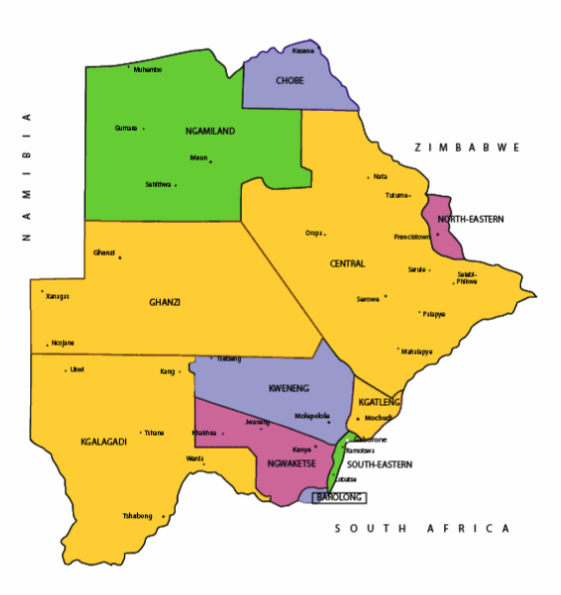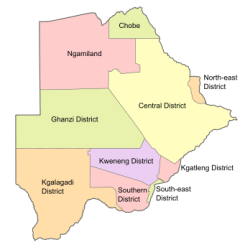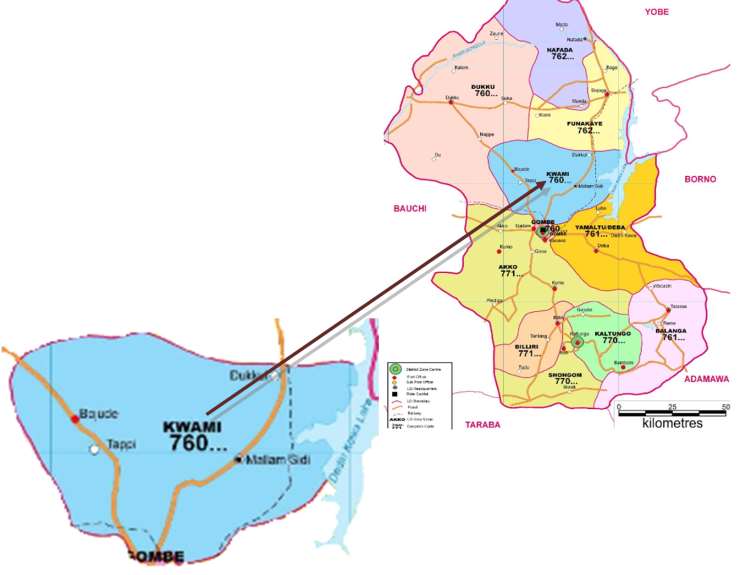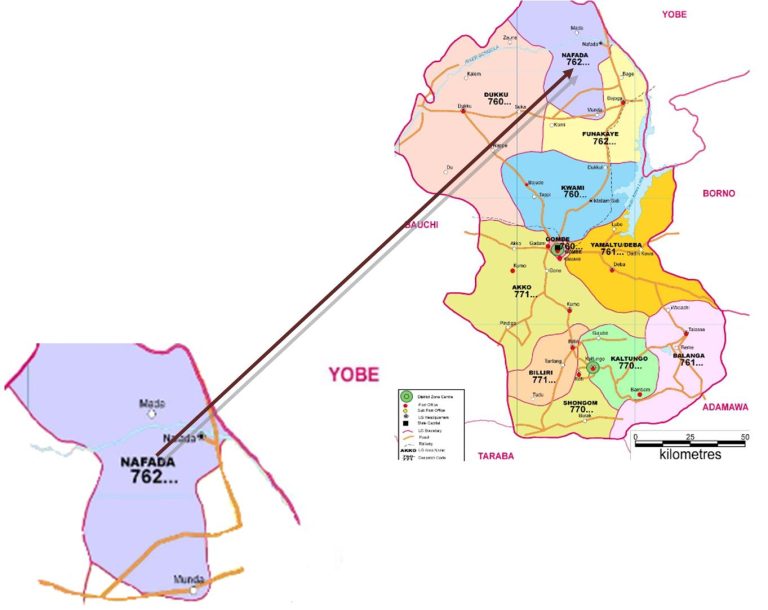Places and their polling units in Okavango, Botswana
038 Gani-Nxaunxau
0234 Nxaunxau Primary School
0235 Tsodilo Mobile Stop
0236 Xabacha 1 Mobile Stop
0237 Tent at Mogotho
0238 Diniva Mobile Stop
0239 Tent at Mahoramelo
0240 Gani Primary School
0241 Setutu Mobile Stop
0242 Tent at Kazondge
0243 Senono Mobile Stop
0244 Tent at Xamukucha
0245 Chukumuchu Primary School
0246 Xaudom Mobile Stop
0247 Tent at Rekonga
039 Shakawe-Mohembo West
0248 Nxomokao Cattle Crush
0249 Mohembo Primary School
0250 Tent at Tani Kgotla
0251 Shaikarawe Mobile Stop
0252 Shakawe Brigade
0253 Shakawe Primary School
040 Kauxwi-Xakao
0254 Xakao Primary School
0255 Gowa JSS
0256 Tent at Bottom
0257 Kapotora Mobile Stop
0258 Tent at Mohembo East Kgotla
0259 Kauxwi Primary School
0260 Tent at Divava Kgotla
041 Shakawe East
0261 Kathiana Primary School
0262 Tent at Ukusi
0263 Shakawe Sub-Land Board
0264 Shakawe SSS
0265 Shakawe Main Kgotla
042 Nxamasere-Samochima
0266 Nxamasere Cattle Crush
0267 Nxamasere Primary School
0268 Samochima Mobile Stop
0269 Xhauga Mobile Stop
0270 Samochima Primary School
043 Sepopa-Ikoga
0271 Sepopa Primary School
0272 Mowana Mobile Stop
0273 Tent at Gucha
0274 Ikoga Primary School
0275 Kajaja 1 VDC House
0276 Xanxana Mobile Stop
0277 Thamachaa Mobile Stop
0278 Popagano JSS
044 Seronga-Gunotsoga
0279 Seronga Primary School
0280 Seronga Sub-Land Board
0281 Mbiroba (Tent)
0282 Gunotsoga Primary School
0283 Dungu Cattle Crush
0284 Tent at Mawana
0285 Tent at Ndorotsha
0286 Teekae Mobile Stop
0287 Xao 1 Mobile Stop
045 Beetsha-Gudigwa
0288 Beetsha Primary School
0289 Tent at Matswii
0290 Gudigwa Primary School
0291 Tent at Vumbura Safari Camp
0292 Eretsha Primary School
0293 Xhuruma Veterinary Camp
046 Ngarange-Mogotho
0294 Sekondomboro Primary School
0295 Ngarange Primary School
0296 Mokgacha Mobile Stop
0297 Tent at Nende
0298 Mogotho Primary School
0299 Tent at Hongwa
0300 Tent at Sekandoko
0301 Tovera Mobile Stop
Reference: iec.gov.bw/index.php/electoral-districts/polling-stations.html
Botswana
Botswana is a country in Africa. It is topographically flat, with approximately 70 percent of its territory being the Kalahari Desert.
It is bordered by South Africa to the south and southeast, Namibia to the west and north, and Zimbabwe to the northeast.
Capital: Gaborone
Currency: Botswanan Pula
Official language: English
Population: 2.588 million (2021) World Bank
Dialing code: +267
Gross Domestic Product: 17.61 billion USD (2021) World Bank
Botswana’s ten districts are:
- Southern District
- South-East District
- Kweneng District
- Kgatleng District
- Central District
- North-East District
- Ngamiland District
- Kgalagadi District
- Chobe District
- Ghanzi District
Botswana’s councils created from urban or town councils are: Gaborone City, Francistown, Lobatse Town, Selebi-Phikwe Town, Jwaneng Town, Orapa Town and Sowa Township.






The name Botswana refers to ‘Land of the Tswana’. The landlocked, Southern Africa country is officially known as the Republic of Botswana.














Botswana is connected to Zambia through the Kazungula Bridge making it the world’s shortest border between two countries.
A country of slightly over 2 million people (2021), Botswana is one of the most sparsely populated countries in the world. It is essentially the nation state of the Tswana ethnic group, who make up 79% of the population.

About 11.6 per cent of the population lives in the capital and largest city, Gaborone.
Formerly one of the world’s poorest countries—with a GDP per capita of about US$70 per year in the late 1960s—it has since transformed itself into an upper-middle-income country, with one of the world’s fastest-growing economies.


The Tswana ethnic group were descended mainly from Bantu-speaking tribes who migrated southward of Africa to modern Botswana, living in tribal enclaves as farmers and herders.




In 1885, the British colonised the area and declared a protectorate under the name of Bechuanaland.
As colonisation stopped, Bechuanaland became an independent republic under its current name on 30 September 1966.


Since then, it has been a representative republic, with a consistent record of uninterrupted democratic elections and the lowest perceived corruption ranking in Africa since at least 1998.

The economy is dominated by mining and tourism. Botswana has a GDP (purchasing power parity) per capita of about $18,113 as of 2021, one of the highest in subsaharan Africa.


Botswana is the world’s biggest diamond producing country.
Its relatively high gross national income per capita gives the country a high standard of living and the third-highest Human Development Index of continental Sub-Saharan Africa (after Gabon and South Africa).
The country has been adversely affected by the HIV/AIDS epidemic. In 2002, Botswana began offering anti-retroviral drugs (ARVs) to help combat the epidemic.
Botswana is a member of the Southern African Customs Union, the Southern African Development Community, the Commonwealth of Nations, and the United Nations.




